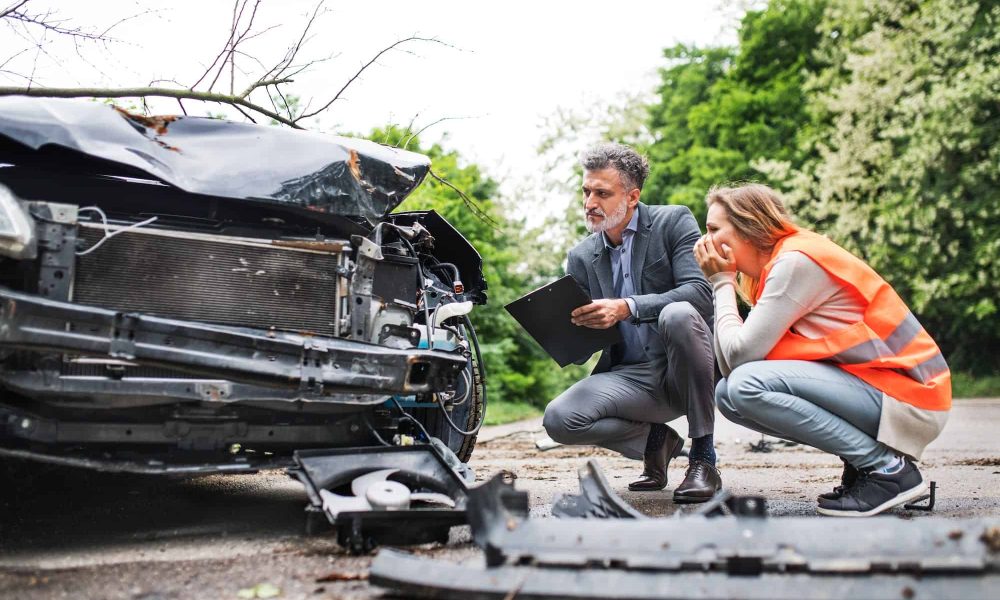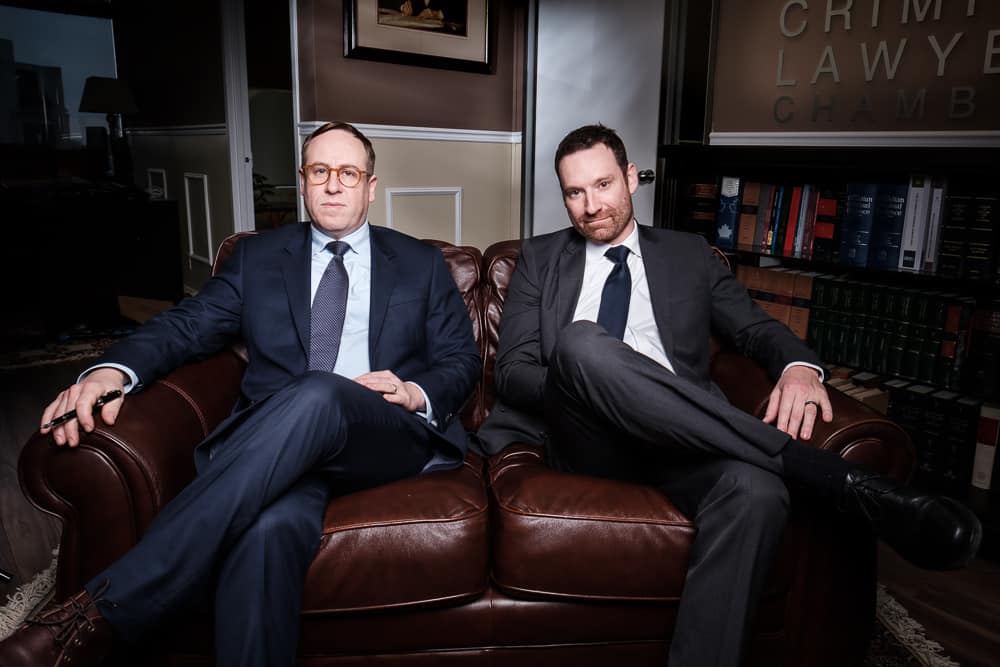
Overview
This page contains detailed information about Canadian Criminal Code charges of "Failure to Stop After Accident". Included are defences, punishments, what's needed to be found guilty, how we can defend you, and actions you can take. It was written and prepared by experienced criminal defence lawyers in Toronto but does not consist of legal advice.
Offence: Failure to Stop After Accident contrary to section 320.16 of the Criminal Code of Canada.
* Note: A conveyance is is defined as a motor vehicle, a vessel, an aircraft, or railway equipment
Charged with “Failure to Stop”? Get Every Defence
With over 25 years experience, Norm and Marcus have successfully defended hundreds of driving cases. Accomplished trial lawyers, Marcus and Norm will carefully assess your case and argue for every defence available to you, including defences under the Canadian Charter of Rights and Freedoms.
Do not plead guilty to “Failure to Stop” without discussing your case with a lawyer
A finding of guilt will result in a criminal record, a lengthy driving suspension, skyrocketing car insurance rates and possibly jail. Being found guilty may also result in negative employment, immigration and personal consequences to you and your family for years to come. You have everything to lose and little to gain by pleading guilty to these charges rather than fighting them.
Every Defence. Norm and Marcus will ensure that all of your rights are protected. You are presumed innocent. We will fight for the positive result you need to move on with your life.
To speak with Norm or Marcus, call (416) 855-7799 or email us at [email protected]. We accept calls 24 hours a day, 7 days a week. Confidentiality guaranteed. Free consultations. Meeting by appointment only.

Defences for Failing to Stop After an Accident
- Identity of offender not proven;
- Driving or care or control not proven;
- Knowledge not proven;
- Duress;
- Necessity;
- Automatism;
- Breach of right to be free from arbitrary detention (Charter);
- Breach of rights to counsel (Charter);
- Breach of right to a trial within a reasonable time (Charter);
To be found guilty of Failure to Stop After an Accident
The Crown Attorney has to prove ALL of these things BEYOND A REASONABLE DOUBT:
- The accused was operating a conveyance
- The accused knew, or was reckless as to whether, the conveyance was involved in an accident with a person or another conveyance;
- The accused knew that his/her consumption of alcohol and/or a drug would or might impair his/her ability to drive;
- The accused failed, without reasonable excuse, to stop, give their name and address, and if any person had been injured or appeared to require assistance, offer assistance.
How the prosecutor will try to prove guilt of Failure to Stop at an Accident
The Crown Attorney will rely on observations made by witnesses and any other available circumstantial evidence, to try to prove that you were operating the conveyance at the time of the accident and fled the scene without providing the necessary information and offering assistance.
How we can defend you
Driving cases can be technical to prove and defend and have serious consequences. To ensure you have the best chance of success, it is important that you have a lawyer with strong cross-examination skills and who is experienced and up-to-date on the most recent court cases. We have successfully defended hundreds of driving cases.
Every Defence.
Punishment IF found guilty
- IF the Crown elects to proceed by summary conviction, the maximum sentence is two years less a day in prison and a three year driving prohibition
- IF the Crown elects to proceed by indictment, the maximum sentence is ten years in prison and a ten year driving prohibition;
- Your driver’s licence will be automatically be suspended under the Highway Traffic Act.
IF the accident resulted in bodily harm – CC 320.16(2)
- IF the Crown elects to proceed by summary conviction, the minimum sentence is a $1000 fine. The maximum sentence is two years less a day in prison and a three year driving prohibition;
- IF the Crown elects to proceed by indictment, the maximum sentence is 14 years in prison;
- Your driver’s licence will be automatically suspended under the Highway Traffic Act
IF the accident resulted in death – CC 320.16(3)
- This is a straight indictable offence. The minimum sentence is a $1000 fine. The maximum sentence is life in prison.
- Your driver’s licence will be automatically suspended under the Highway Traffic Act
Additional notes on sentencing
The above punishments do not include insurance consequences or requirements mandated by the Ministry of Transportation to have your driver’s licence reinstated following a conviction (e.g. Back on Track remedial measures program and associated costs).
IF a person is convicted of impaired driving, they may be able to drive during part of the driving prohibition period if they are registered in an alcohol ignition interlock device program established by the province.
IF the Crown Attorney agrees, the Court MAY, after finding a person guilty of impaired driving, delay sentencing to allow the person to attend a treatment program approved by the province. IF the person then successfully completes the treatment program, the Court MAY sentence the person to a fine or prison sentence that is below the mandatory minimum. However, after finding a person guilty of impaired driving, in no circumstances can the Court grant a conditional or absolute discharge.
Links and resources
Recent Successes
R. v. M.R – Our client was not proven to be the driver
A car crashed into the rear of a parked car with two occupants. Witnesses observed a male get out of the driver’s seat that had caused the accident and flee the scene. Police officers searched the surrounding neighbourhood and came upon our client who looked similar to the description they received of the suspect. The police observed that our client appeared to be impaired by alcohol and detained him for investigation. After questioning him, they handcuffed him, searched him and detained him in the back of their police car while they waited for information from other officers who were searching the vehicle at the accident scene. During the search of our client, the police officers located a vehicle ownership slip in his wallet. After our client had been detained in the back of the police car for about 15 minutes, the officers received information that the vehicle that had been in the accident matched the information on the ownership slip that was located in our client’s wallet. The police subsequently advised our client that he was under arrest. At trial, we argued that a number of our client’s Charter rights were breached, including his right to be free from unreasonable search and seizure (as he was only under an investigative detention the police did not have a right to search his wallet), his right to be free from arbitrary detention (as he was only under an investigative detention the police did not have the right to handcuff him and detain him in the back of their police car) and his right to counsel were breached. The trial judge excluded the evidence of the ownership slip found in our client’s wallet and the charge against our client was dismissed.
